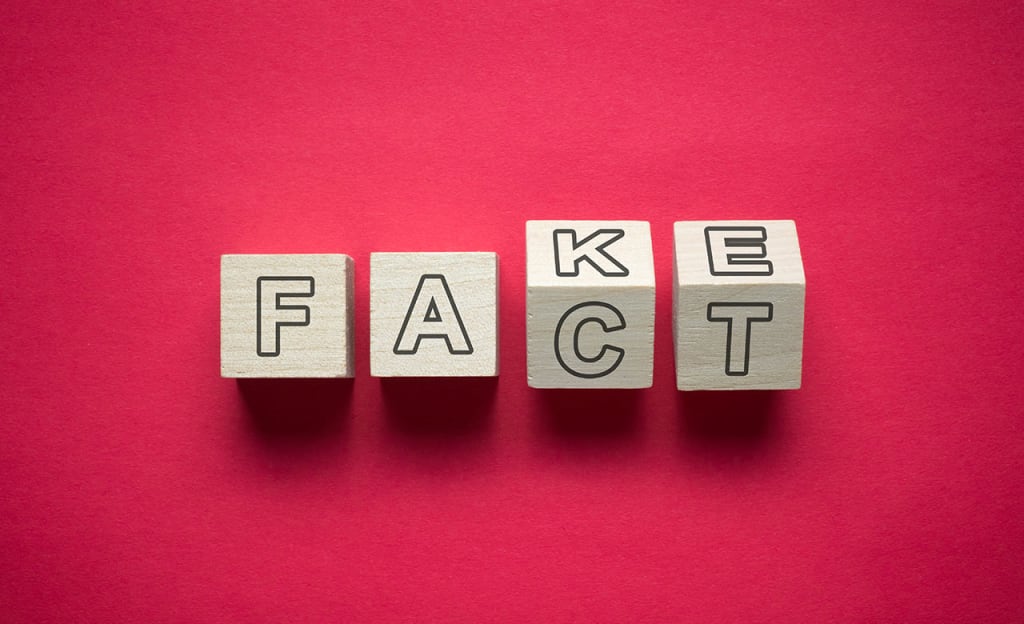4 Reasons Why Imposter Syndrome May Be a Fraud
And how you can stop feeling like a fake.

Many of us suffer from "imposter syndrome" where we think we're not 'good enough' and feel unworthy of our hard-won achievements. It can feel like it's only a matter of time before we're outed as a ‘fake’ despite evidence to the contrary.
Research indicates up to 82% of us experience imposter feelings at some point. And if said feelings are chronic, we tend to forego or even sabotage opportunities—a new position, a promotion, an award, and so on.
While no one is immune, research suggests these feelings are prevalent among high achievers. Women and minority-status individuals may also be more susceptible. And these findings ring true based on my own experience as a research scientist. When the university I worked for promoted me to a senior academic role, doubts crept in: "Did they make a mistake?" The large panel of esteemed researchers who approved my promotion did nothing to assuage my doubts.
Yet I no longer have doubts. Why? I did what I often do when I want to solve a problem. I carried out a deep dive into the research literature and discovered, with a hefty dose of irony, that researchers are now starting to call out the "syndrome" as a fraud.
We are calling fraud on impostor syndrome — McGee et al., 2021
Here I share four compelling reasons why using the term "syndrome" may be misleading.
1. Imposterism is not a formal diagnosis
Let's start with what a syndrome is. A typical dictionary entry defines a syndrome as "a disease or disorder that involves a particular group of signs and symptoms."
Let's unpack this definition.
Is imposter syndrome a disorder? No. It doesn’t feature in the American Psychiatric Association’s Diagnostic and Statistical Manual of Mental Disorders.
Nor is this so-called syndrome a disease. The International Classification of Diseases makes no mention of imposterism.
What is true are the perceived beliefs of incompetence and inadequacy. Worse, research associates these faulty perceptions with a range of all-too-real symptoms. These include psychological distress, low self-esteem, and lower performance.
But by pathologising self-doubt, and faulty beliefs, we misdiagnose the problem, as imposterism is an ill-matched description of a syndrome. Instead, as highlighted in the next two points, feeling like an imposter may be symptomatic of other issues.
2. Impostorism is linked with mental health conditions
Feeling like an imposter is sometimes experienced by those afflicted with preexisting psychological issues. For instance, research has linked imposterism with depression, anxiety, and low self-esteem.
It's important to note that correlation does not mean causation. Researchers are keen to point out that experiencing imposter feelings does not cause depression or vice versa. All we can say is that some people who are diagnosed with, let's say, anxiety, may also experience self-doubt. Likewise, someone who experiences anxiety, may not think they are a phoney.
Let's imagine you have chronic feelings characteristic of imposterism, and you decide to visit your doctor. The ensuing discussion will likely explore other causes, such as those suggested above. If you are unfit for work, it's hard to imagine a doctor's fit note would ever state "imposter syndrome"; instead a doctor would—if the symptoms are both chronic and debilitating—likely diagnose a known mental health condition, such as anxiety.
What's more, a doctor would explore if there's anything else in your life causing upset. Recall my own experiences of imposter thoughts when I doubted my promotion? Ten days prior to my interview, we had a serious house fire. To say my anxiety levels in the immediate aftermath of the fire were sky high would be a serious understatement! In other words, I wasn't suffering from a syndrome; I was understandably exhausted and anxious.
And this is why some researchers are now calling the syndrome out. Imposterism may well be symptomatic of other psychological issues. But for others, it's caused by equally troubling factors, as detailed next.
3. Misplaced root causes
Misdiagnosing self-doubt as a "syndrome" also suggests it's only the individual who needs fixing. Yet while a person may feel like an imposter, the problem often lies elsewhere.
Research now implicates a far bigger problem—imposterism arises from historical and cultural contexts.
Seeds of self-doubt, for instance, can grow from hurtful comments during childhood. Bullying is one culprit. So are offhand remarks from a teacher, caregiver, or relative.
Moreover, acts of discrimination, such as racism, sexism, and ageism, also give rise to "imposter" sentiments.
Toxic workplace cultures also breed feelings of inferiority. Research finds that competitiveness, a blame culture, and burnout also increase the risk of imposterism.
Yet many so-called fixes focus on the individual. 'Fixes' typically involve talking to a therapist, practising self-compassion, and repeating positive self-affirmations. Yet as helpful as these are and deserve exploring, they focus on the symptoms, not the cause.
By reframing imposterism as a societal problem, we stand a much better chance of lessening its impact. This wider perspective also emphasises the need to increase existing efforts, such as adopting a zero-tolerance attitude towards discrimination. Improving our education systems. And investing in inclusive workplaces that allow employees to thrive.
4. It's a popular, not scientific term
You may be wondering if "imposter syndrome" has never been diagnosed as a genuine syndrome, why is it labelled as so?
It’s hard to pinpoint exactly when, or how these fraudulent feelings morphed into a syndrome. However, it’s highly unlikely the term originated within the scientific community. The original research paper that brought imposter feelings to the world’s attention never used the word. And to this day, it’s better known as the 'impostor phenomenon’ in academic circles.
Whereas the academic literature on the topic is nearly all indexed with the term Impostor Phenomenon, the entirety of the lay literature is indexed with the term Imposter Syndrome. — Dena Bravata, MD.
The most likely explanation for its popular use is word of mouth. Google returns shy of 17 million results for so-called imposter syndrome. And the more we see and hear the phrase, the more we’ll use it.
In brief, imposter syndrome is not a scientific term; it's a phenomenon that's medicalised by the popular press, and amplified on social media.
4 tips to overcome imposter feelings
While imposterism isn't a formal diagnosis, and is a psychological phenomenon, not a syndrome, this doesn't mean to say we should neglect it. Far from it. These feelings gnaw away at our self-confidence and can leave us in distress. As such, here are 4 tips to prevent your imposter feelings from getting the better of you.
Tip 1. Consult your doctor. If your imposter feelings negatively impact your performance and/or quality of life, it's always best to chat with your doctor. At the very least, a visit may put your mind at rest. Alternatively, a consultation could lead to a different diagnosis, for which well-known, proven and better treatments are available.
Tip 2. Identify the causes. What lies beneath your feelings? Is there something in your life that's causing you to doubt yourself? Or could your phoney feelings and thoughts be traced back to something that happened in your past? Either way, exploring the present and past could be achieved by yourself, e.g. journaling. Alternatively, you could talk to a professional, e.g. an accredited coach, or therapist.
Tip 3. Don't fear self-doubt. Self-doubt is part of the human condition. In other words, it's natural. I recommend taking heed of Adam Grant's advice in his bestselling book, Think Again. Here, Grant tells us that overconfidence often backfires. Instead, self-doubt helps us realise that we may not hold all the cards, or that more research or practice needs to be done. In short, exercising self-doubt can help us make better decisions, and hold better opinions!
Tip 4. Reframe the syndrome for what it is. As imposterism is not a syndrome, it makes sense to call it out for what it is—a psychological phenomenon. Therefore, it may be wise to resist the temptation to utter the words "imposter syndrome." Indeed, the less we say it, the more we can direct our efforts to solve the real problem(s).
About the Creator
Nic Thomas
At dawn and dusk, I dabble in fiction and poetry. In the 'day job', I focus on science communication and human potential. On Vocal Media, I'm here to share fiction and fact. I also enjoy reading the contributions of other writers.






Comments
There are no comments for this story
Be the first to respond and start the conversation.